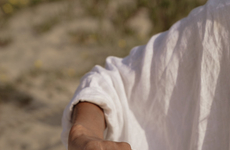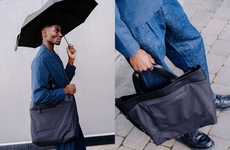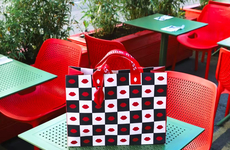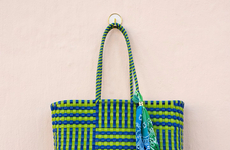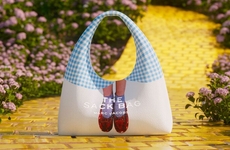
The Tote of Hope Supports the Sheltersuit Foundation
Debra John — November 11, 2024 — Social Good
References: instagram & store.sheltersuit
The Tote of Hope is a sustainably crafted bag, carefully made by employees in the Sheltersuit Foundation’s social workshop. Using only surplus materials from Sheltersuit production, each tote "is individually handmade; as a result, every bag offers a unique design." This approach not only ensures a distinct, stylish product but also promotes sustainable fashion and reflects the foundation’s commitment to purpose-driven initiatives for conscious consumers.
Furthermore, a portion of the proceeds from each Tote of Hope sale directly supports the Sheltersuit Foundation. This funding is "essential for providing warmth and shelter to those experiencing homelessness, reinforcing the foundation’s mission." By integrating sustainable production practices with meaningful community support, the Tote of Hope aligns environmental responsibility with social impact, offering a product that serves both fashion and philanthropy.
Image Credit: Sheltersuit Foundation
Furthermore, a portion of the proceeds from each Tote of Hope sale directly supports the Sheltersuit Foundation. This funding is "essential for providing warmth and shelter to those experiencing homelessness, reinforcing the foundation’s mission." By integrating sustainable production practices with meaningful community support, the Tote of Hope aligns environmental responsibility with social impact, offering a product that serves both fashion and philanthropy.
Image Credit: Sheltersuit Foundation
Trend Themes
1. Sustainable Fashion Integration - Fashion brands are increasingly adopting sustainable practices, emphasizing the use of surplus materials to create unique, eco-friendly products.
2. Purpose-driven Design - Products that integrate social impact into their design and sales strategy are attracting conscious consumers looking for more than just aesthetics.
3. Community-supporting Commerce - Businesses are finding value in models that allocate a portion of their profits to support social initiatives, enhancing brand loyalty and community engagement.
Industry Implications
1. Fashion Industry - The fashion industry is evolving towards sustainability, leveraging recycled materials and ethical production to meet the demands of eco-conscious consumers.
2. Social Enterprise - Social enterprises are growing as they blend commercial success with measurable social impacts, addressing societal issues through business solutions.
3. Nonprofit Partnerships - Collaboration between for-profit companies and nonprofit organizations is becoming common, mutually benefiting both entities through shared missions and resources.
6.3
Score
Popularity
Activity
Freshness


